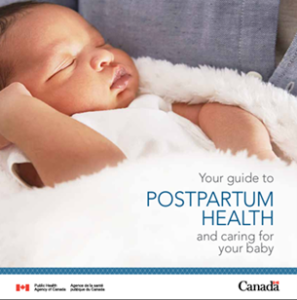- Baby Blues
- Changes in Your Body After Giving Birth
- Grandparents and the New Baby
- Infant Attachment
- Jealousy and Sibling Rivalry: Newborn Edition
- New Dad
- Newborn Routine Practices and Tests
- Preventing Baby Flat Head
- Shaken Baby Syndrome
- Taking Care Of Your Mental Health While Expecting And Caring For A Baby
- Tummy Time
Welcome to Parenting (Infants)

This section, ‘Welcoming to Parenting,’ guides your transition to parenthood. This information will help you in your journey by providing the knowledge you need as a new parent.
The first few weeks after birth is a time of emotional and physical changes. Knowing what to expect and how to care for you and your baby can ease your adjustment to parenthood.
- Changes in your body after giving birth
- Caring for yourself as a new parent
- Newborn routine practices and tests
Take comfort knowing that there is no such thing as a perfect parent but that you are the perfect parent for your child.
Feelings at birth are different for every parent. Some feel an immediate bond to their baby, while it may take longer for others. This may be due to the intense role change of becoming a parent and the responsibilities that go with it. Many new parents question if they are doing the right thing. This is common. Your confidence as a parent will grow each day. Take time to enjoy your baby by talking, cuddling, singing, and gazing into their eyes.
Getting to Know Your Baby
As you get to know your baby, you will learn the signs that tell you when they need you. Comfort your baby, especially when they are hurt, sick or upset. You will also learn to recognize when your baby is content, exploring the world around them knowing that you are nearby. Over time, this relationship helps you build a secure attachment with your baby.
- Comfort your baby with soft touch and warm cuddles when they cry.
- Use gentle rocking motions to soothe your baby.
- Make eye contact and smile.
- Talk to your baby and respond to baby sounds.
- Respond to your baby to help them feel loved, valued and confident in their place in this world.
- Play with your baby. Play helps a baby develop motor skills, problem-solving skills and teaches them how to get along with others. (i.e. sing, read, make funny faces and sounds, and play peek-a-boo.)
As your baby grows, you may find it helpful to connect with other parents to share your experiences. You may also have questions for health professionals. Below are some topics that you may find helpful.
First Days
- Appearance
- Attachment
- Baby blues
- Bathing baby
- Birthmarks
- Birth control
- Breastfeeding
- Car seat safety
- Child development
- Child safety/childproofing
- Choosing how to feed your baby
- Colic
- Crying
- Infant formula
- Jaundice
- New dad
- Perinatal Depression and Anxiety
- Postpartum Depression (Fathers/Partners)
- Preventing Baby Flat Head
- Reflexes
- Safe sleep
- Scalds and burns
- Shaken baby syndrome
- Skin changes
- Skin-to-skin/kangaroo care
- Sleep habits
- Thrush
- Tummy Time
- Umbilical cord care
- Wet diapers and baby poop – what you can expect
You and your new baby
- Canada’s Food Guide
- Car seat safety
- Child development
- Crying
- Dental health
- Health checks
- Healthy Beginnings
- Immunizations
- Jaundice
- Prenatal infant nutrition supplement
- Prevention Baby Flat Head
- Safe sleep
- Secondhand smoke
- Shaken baby syndrome
- Tummy Time
Services related to this information:
- Contact your Public Health Nurse.
- 811 HealthLine (Newfoundland & Labrador) – Call 811 or 1-888-709-2929 / TTY 1-888-709-3555

